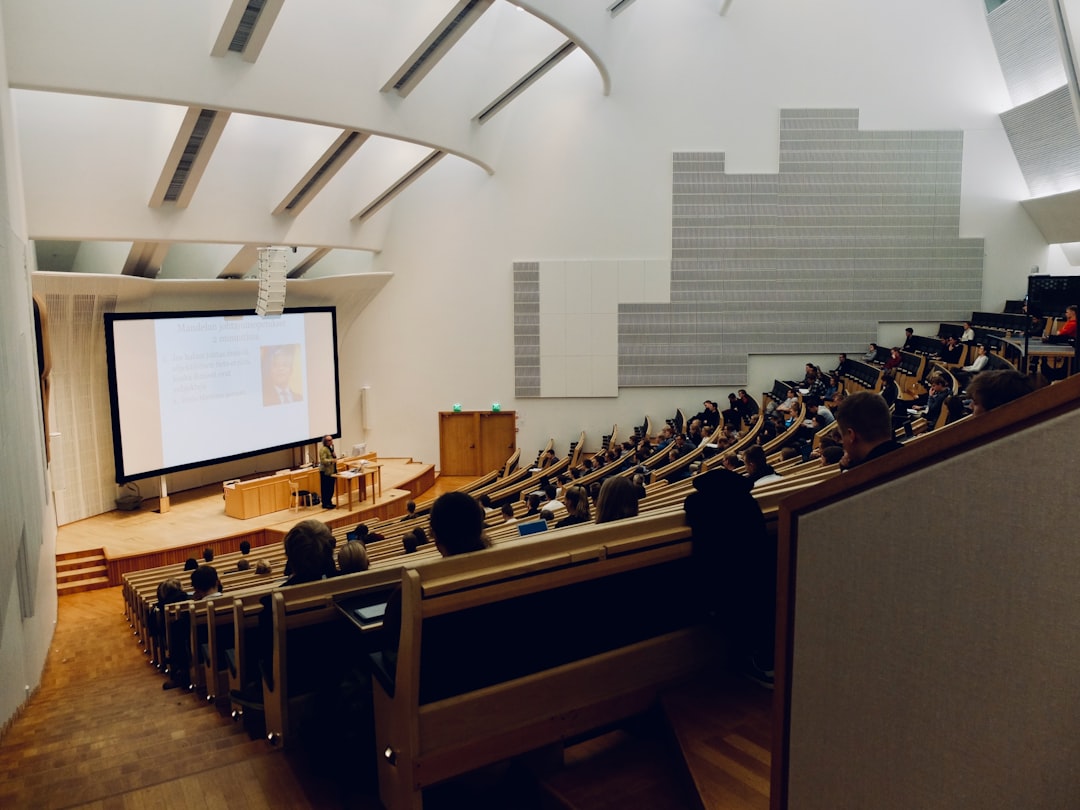When the tail wags the dog
Bureaucracy and the academy
Imagine you’re an administrator at a university, dealing with a particularly aggrieved student. The student complains that she has been offended by something a lecturer said in class. The student is persistent. Your job is to ensure that students are satisfied and complaints are resolved. What’s the best way to resolve this?
The answer is easy, particularly if you, the institution, or society more generally have sympathy with the student’s views. Listen to the grievance, act upon it, and chastise the lecturer. As an administrator, you can record that you have performed your duty and successfully resolved the student’s complaint, and everyone is happy.

Everyone, that is, except the lecturer herself, and those students who were not offended by the lecturer’s actions, and may have found the discussion instructive or interesting.
Do you think this scenario is far-fetched and fanciful? I assure you, it’s not. To take an example, the BBC reported the following incident at Hamline University, after a student complained about a lecturer’s conduct:
Erika Lopez Prater showed a classical work depicting the Prophet in an art history class at Hamline University in St Paul, Minnesota.
One of her students complained, and Prof Lopez Prater’s contract was subsequently not renewed at the end of the term.
…
The picture that was shown was an illustration of Muhammad receiving a revelation from the angel Gabriel - part of A Compendium of Chronicles by Rashid-al-Din, a 14th Century Islamic scholar.
Before presenting it, she warned students that they could choose to opt out of the lesson, as many Muslims consider images of Muhammad to be un-Islamic, although there is a variety of views within Islam on the subject.
Despite the warnings, Aram Wedatalla, a student and president of Hamline's Muslim student association, was upset by the class and after a conversation with the professor, complained to university authorities.
“I'm like, ‘This can't be real,’” Ms Wedatalla later told the university's student newspaper. “As a Muslim, and a black person, I don't feel like I belong, and I don't think I'll ever belong in a community where they don't value me as a member, and they don't show the same respect that I show them.”
An administrator then called the professor’s actions “Islamophobic” - a label that the university later recanted - and her adjunct contract was not renewed.
This is a “principal-agent” problem, in economic terms: namely, that the person who makes the decision is not the one who suffers the adverse consequences of that decision.
Universities are rife with the principal-agent problem.
It is important to understand that the administrator’s response is rational. The decision-maker has no reason to make a different decision (and, in fact, no reason to know that their decision creates difficulty for others) because there are no adverse consequences for them personally. Indeed, the consequences for the administrator are positive: the student goes away, satisfied, and the administrator records that they successfully resolved a dispute, and pats themself on the back for doing their job well.
The adverse effects of the decision fall upon the principals for whose benefit the agent or decision-maker acts: namely, the lecturer who may be sanctioned, and even (as in the case above) lose her job.
The principal-agent problem means that the feedback loop is broken. Any adverse effects of the administrator’s decision continue, because the administrator is unaware of them; unless an international scandal breaks over the university’s failure to renew the lecturer’s contract.
The other students may also be disadvantaged—they may have wished to study the area now deemed out-of-bounds—but it’s hard to know what they want, when social pressure affects the public expression of views.
Timur Kuran explains how social pressure may cause some in society to publicly express views they privately do not hold (‘preference falsification’),1 and how such views can suddenly, unexpectedly collapse, when a sufficient number of people admit their private doubts. Kuran uses the fall of the Iron Curtain in 1989 to illustrate this phenomenon. One could just as easily think of Brexit as an instance of this phenomenon; the result came as a surprise to most of the political elite, pundits and academics.
In forming policy and resolving disputes, university administrations can only act upon publicly expressed views—in this instance, the view of the offended student, often supported by an outraged group—and cannot know if other students are falsifying preferences, or just staying silent in the hope that they will not be “called out” in the same way as the lecturer has been.
Squeaky wheels get the most oil. Hence, there’s an incentive for students to be squeaky wheels, particularly if they gain social status and standing as a result. However, we should take care in how we handle such complaints. Gordon Livingston, a psychiatrist of many years standing, says:
…compensating people who feel helpless validates this emotion and insures that it persists, while creating a powerful incentive to surrender one’s autonomy and sense of competence. In other words, such a system undermines the self-esteem of those it purports to help and constitutes a self-fulfilling affirmation of dependency and hopelessness.
…
The role of victim is generally accompanied by a sense of shame and self-blame. This is true of those victimized by huge social catastrophes (slavery, the Holocaust) or by individual ordeals (crime, illness). This is why there is a fine line between expressing empathy and solidarity for those who suffer and endorsing a passive dependency.2
I’m no stranger to hardship, as I have related here. While people who wish to treat me as a victim generally mean well, I’d rather see myself as a person with agency. A person who has choices as to how to respond to the bad things that have happened to her, and who can change the patterns of the past. That was then, this is now.
This, in a nutshell, explains how the academy arrived at its current position, with the administration tail wagging the academic dog. The issue is present in the United States to a much greater degree than Australia, or so it seems to me.
Just rinse and repeat the interaction above, and multiply the administrators, until they outnumber the teaching academics. Eventually, students may come to see administrators as protectors, and administrators may come to see their job as preventing offence.
If you agree with the students that the views sought to be banned are offensive, you might think that this is a good thing.
I invite you to think what happens if societal views on what is offensive change, and your currently acceptable view becomes offensive. This is not beyond the bounds of possibility: think how many movies from ten years ago would now be “problematic”. Social views can shift quite quickly.
Think not of how you are offended, or what your personal views are. Think instead what might happen if the dominant preference in society suddenly flipped—Kuran argues that this can happen, in surprising ways—and such powers were brought to bear upon you? Is this a power we really want to give to administrators?
And, perhaps even more importantly, while the desire to respond in this way to aggrieved students might have good intentions, is it really helpful to them in the long run?3
Edited to add: someone pointed out that this analysis applies to ordinary student complaints too. In fact, those complaints are a far more frequent issue than claims of offence. In either event, however, from the point of view of the administrator, the conduct of the lecturer is a problem to be solved.
Timur Kuran, Private Truths, Public Lies: The Social Consequences of Preference Falsification (Harvard University Press, 1997).
Gordon Livingston, MD, Too Soon Old, Too Late Smart (Hodder Mobius, 2004) pgs 34-35.
For suggestions that it is positively unhelpful, and causes students to lack resilience, see eg, Greg Lukianoff and Jonathan Haidt, The Coddling of the American Mind (Penguin, 2018).



No visible nail you don't hit on the head: thanks!
Another cracker, thanks! Re your bottom line / rhetorical Q&A …
perhaps even more importantly, while the desire to respond in this way to aggrieved students might have good intentions, is it really helpful to them in the long run?3
3
For suggestions that it is positively unhelpful, and causes students to lack resilience, see eg, Greg Lukianoff and Jonathan Haidt, The Coddling of the American Mind (Penguin, 2018).
… see also my review at https://www.eternitynews.com.au/opinion/no-platforming-the-threat-to-free-speech/